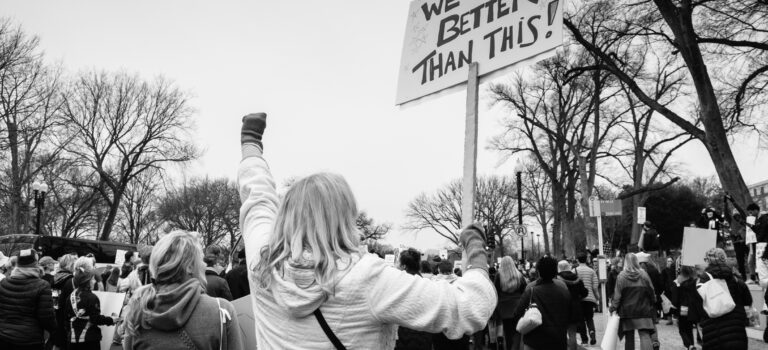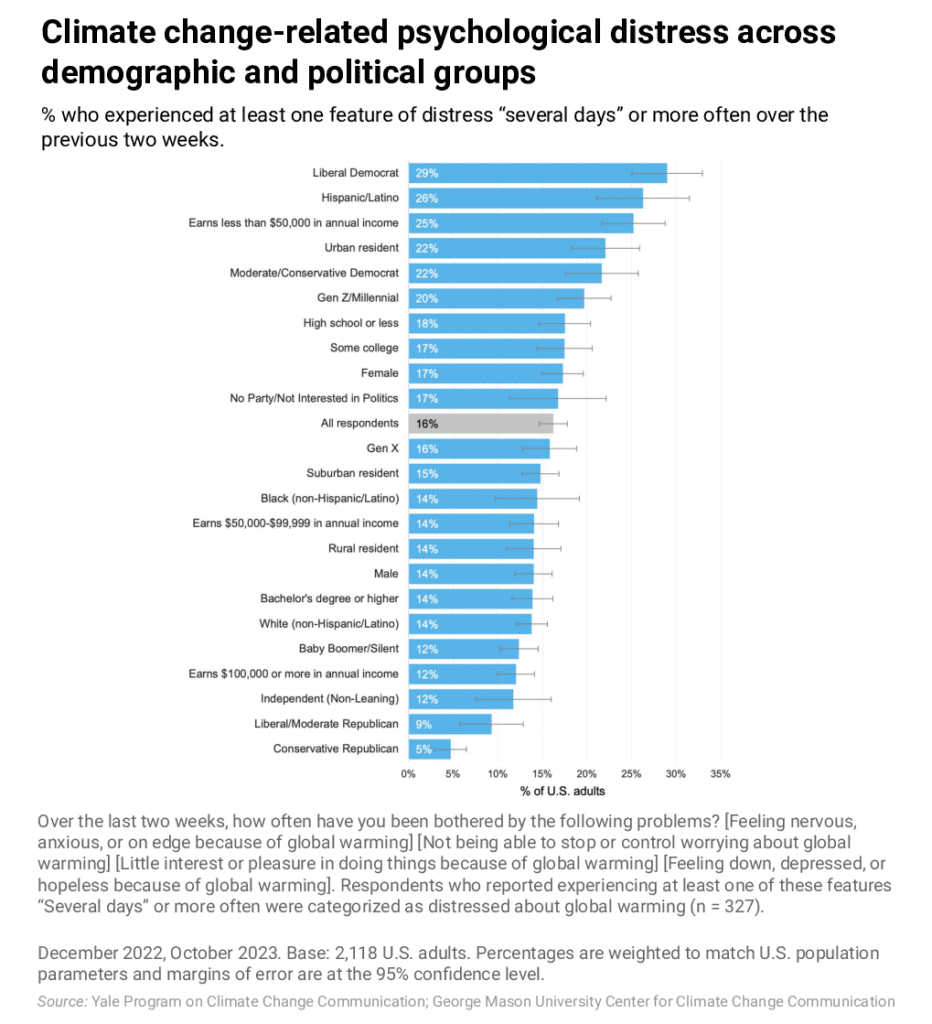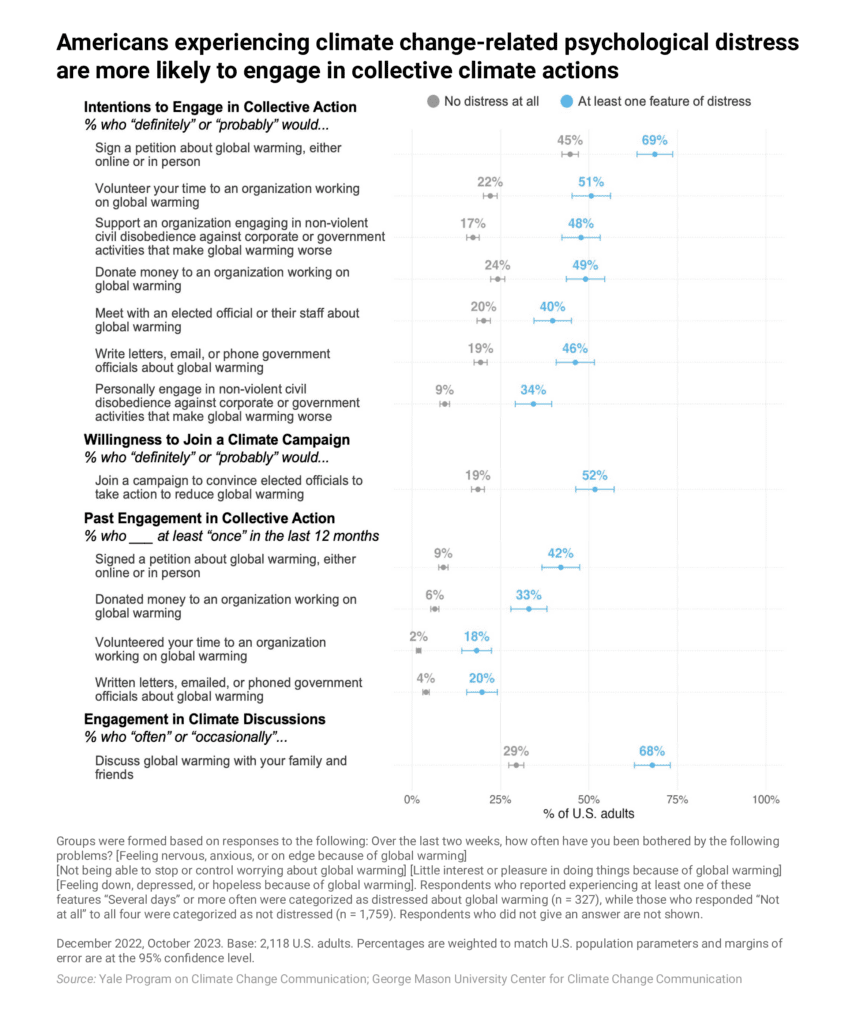Peer-Reviewed Article · Dec 10, 2024
Climate change psychological distress is associated with increased collective climate action in the U.S.
By Matthew Ballew, Sri Saahitya Uppalapati, Teresa Myers, Jennifer Carman, Eryn Campbell, Seth Rosenthal, John Kotcher, Anthony Leiserowitz and Edward Maibach
Filed under: Behaviors & Actions, Climate Impacts and Audiences

We are pleased to announce the publication of a new article, “Climate change psychological distress is associated with increased collective climate action in the U.S.,” in the Nature journal npj Climate Action.
Climate change is having an increasingly serious effect on mental health. As extreme weather events become more frequent and severe, and as actions to reduce climate change move slowly, many Americans are experiencing the toll of climate change on their mental health and well-being. How people experiencing psychological distress engage with climate action, however, is unclear. Distress can be maladaptive, impeding participation, or it can motivate people to engage in climate action. Using data from two nationally representative surveys (n = 2,118) we examined the relationship between climate change psychological distress and engagement in collective climate action, e.g., social, civic, and political actions such as discussing climate change with friends and family, signing petitions, contacting government officials, and similar efforts.
Key Findings
- 16% of American adults report experiencing at least one symptom of psychological distress due to climate change.
- Certain groups, including Hispanics/Latinos, lower-income adults, urban residents, and younger adults, report a higher prevalence of climate-related psychological distress compared to the general population.
- Americans experiencing climate-related psychological distress are more likely to engage in collective climate action or express a willingness to do so, even when controlling for other factors associated with pro-climate behaviors such as political ideology and beliefs in collective efficacy.
Prevalence of Climate Change-Related Psychological Distress
We found that 16% of Americans are experiencing at least one feature of climate change psychological distress (feelings of depression or anxiety related to climate change occurring “several days” or more often in the previous two weeks). Notably, certain groups—including Hispanics/Latinos, lower-income adults, urban residents, and young adults—were more likely than average to report experiencing at least one feature of psychological distress due to climate change.
Relationship Between Climate-Related Distress and Collective Action
We also find that Americans who experienced at least some amount of climate-related distress are much more likely than those without distress to have engaged in collective action on climate change (e.g., contacting government officials), to express intentions to engage in further collective action (e.g., signing a petition), and to be willing to join a climate campaign. Additionally, they are more likely to discuss global warming with their friends and family.
Our analyses show that the positive relationship between climate-related distress and action persists even after controlling for sociodemographic and other key predictors of climate action, such as political ideology and worry about global warming. This suggests that people experiencing climate-related distress may channel their feelings into collective climate action.
Our findings add to an emerging body of research finding that many people experiencing climate-related distress are actively engaged or willing to engage in collective climate action. However, to sustain their engagement and effectively support their mental well-being, people experiencing psychological distress from climate change may wish to access climate-informed mental health support and services. These resources should acknowledge and validate climate-related distress, encourage adaptive resilience, foster community, and empower people to remain actively engaged in collective climate action.
These and other results may be found in our full open-access article.

